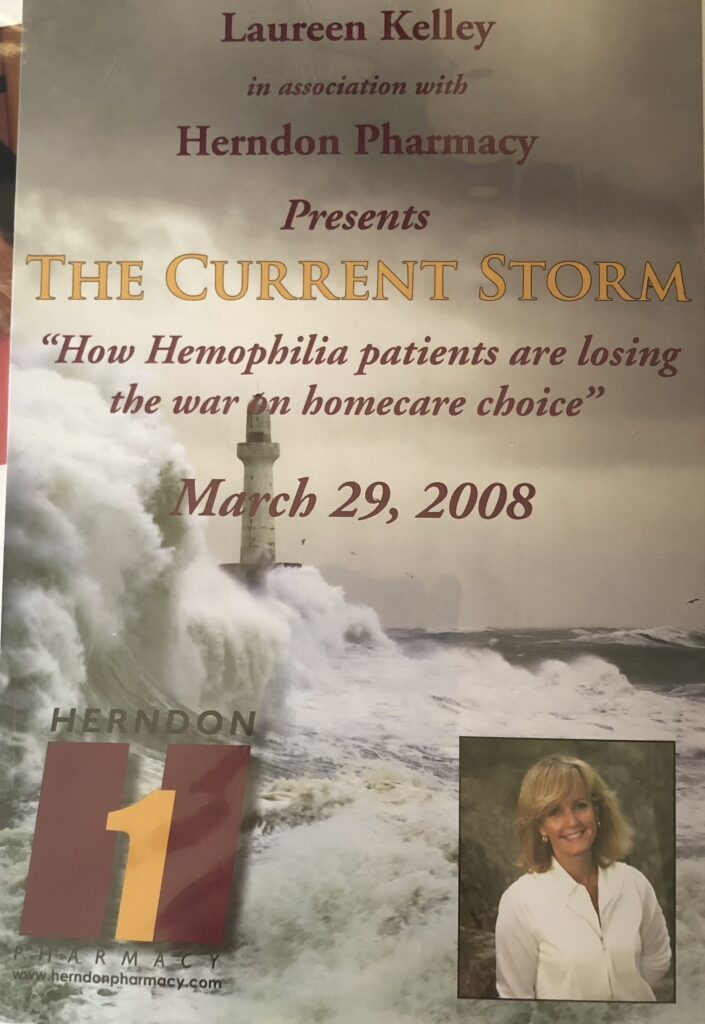Switching Time
Insurance challenges was the topic of my talk in Pleasanton, California at a Herndon Pharmacy sponsored event Saturday evening. We had a great turn out with about 50+ patients and parents attending. We all enjoyed a delicious dinner at the Pleasanton Hilton, followed by my presentation on “The Current Storm.” The hour-long presentation covers what’s happening with hemophilia reimbursement, why it’s happening, how it all got started, and what families shoudl do to protect their insurance and choice. California is facing two major challenges: sudden switching of homecare companies by insurance companies, and a 10% reduction across the board on reimbursement by MediCal. Both measures hurt factor providers (340Bs and homecare) and parents are not very happy with the home care switching. For many parents, they don’t even know what questions to ask. Insurance is complex, ever changing… and necessary.
It was really great to meet some new parents like Christina and Colleen, patients like Art and Stanley, and families I’ve known for a long time, like Vicky and Burt, and Betty. All the attendees really enjoyed meeting each other: everyone knew somebody and it was like a big reunion. You could see the comraderie and joy everyone was feeling. Before everyone left we all sang happy birthday to Mark Helm, president of Herndon, who just had his 50th birthday.
Thanks to Zuiho Taniguchi of Herndon Pharmacy for inviting me and handling all the logistics, and to Mark Helm, for sponsoring this enjoyable event. And please see www.herndonpharmacy.com for more information on Herndon Pharmacy, a contributor of factor to Project SHARE for patients in the developing world, and provider of hemophilia services in the US.
(Photos: 1) Colleen, Laurie, Christina 2) Brochure
Book I Just Read
Enough About You, Let’s Talk About Me: How to Recognize and Manage the Narcissists in Your Life
Les Carter
We all know people who love to talk about themselves. And we all know bores. But these are not necessarily people with bona fide narcissistic personality disorder (NPD). Carter explains very simply and easily what sets these people apart from people who just love talking about themselves. People with NPD can make your life miserable especially if you are married to them, have one as a sibling or parent, or as a boss. They lack the ability to be empathic and are notoriously difficult if not impossible to get into therapy or even get to see your side of a situation. Being with them is positively exhausting and narcissists are great at making you feel guilty and responsible for all that is wrong in a relationship. Carter offers excellent scenarios and great tips for dealing with those with NPD. Carter has a fundamentalist Christian background, and I did not like or agree with his view of children, despite that he is a popular author and therapist, and you may not agree with his linking original sin to this disorder. I also found the book very light, mostly anecdotal, with dialogues from his sessions with patients. This is a good book if you are new to psychology or narcissism. Two out of four stars.








